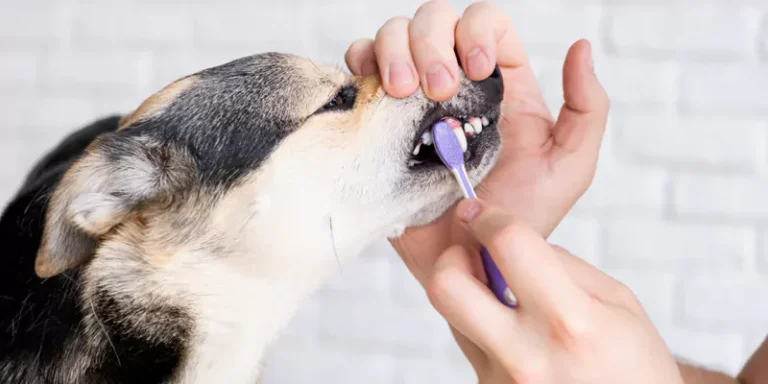Introduction
Maintaining a dog’s oral health is crucial for their overall well-being. Just like humans, dogs can suffer from a variety of dental issues, including plaque buildup, gum disease, and bad breath. One effective way to support your dog’s oral hygiene is through the use of dental chews. These specially designed treats help clean teeth, reduce plaque and tartar, and promote fresh breath, making them a valuable addition to your pet’s dental care routine.
The Problem of Canine Dental Health
Dental problems are common in dogs. Studies suggest that up to 80% of dogs over the age of three suffer from some form of periodontal disease. This condition is caused by the accumulation of plaque, a sticky film of bacteria that forms on the teeth. If not removed, plaque hardens into tartar, leading to inflammation of the gums (gingivitis) and, eventually, periodontal disease, which can cause tooth loss and other health issues.
Signs of dental problems in dogs include:
- Bad breath (halitosis)
- Red or swollen gums
- Yellow or brown tartar buildup on the teeth
- Difficulty eating or chewing
- Pawing at the mouth
- Drooling excessively
How Dental Chews Work
Dog dental chews are designed to mechanically clean the teeth as the dog chews on them. The action of chewing helps scrape away plaque and tartar, similar to how brushing works for humans. Additionally, many dental chews contain ingredients that help fight bacteria and freshen breath.
Key Benefits of Dental Chews:
- Plaque and Tartar Reduction: The primary benefit of dental chews is their ability to reduce plaque and tartar buildup. Regular use can significantly decrease the risk of periodontal disease.
- Fresh Breath: Dental chews often contain ingredients that help neutralize odors, leading to fresher breath for your pet.
- Gum Health: By promoting cleaner teeth, dental chews also contribute to healthier gums, reducing the risk of gingivitis.
- Overall Health: Good oral hygiene can prevent bacteria from entering the bloodstream through the gums, which can affect other organs like the heart and kidneys.
- Mental Stimulation: Chewing is a natural behavior for dogs that provides mental stimulation and helps relieve boredom and anxiety.
Types of Dog Dental Chews
Dog dental chews come in various shapes, sizes, and flavors to cater to different preferences and needs. Some of the popular types include:
- Rawhide Chews: These are made from the inner layer of cow or horse hides. They are durable and long-lasting but may not be suitable for aggressive chewers or dogs with sensitive stomachs.
- Edible Dental Chews: These chews are made from digestible ingredients and are designed to be eaten. They often come in flavors that dogs love, like chicken or peanut butter.
- Rubber Chews: Made from durable rubber, these chews are great for aggressive chewers. They can be stuffed with treats or peanut butter to make them more enticing.
- Natural Chews: These include options like bully sticks, pig ears, and antlers. They are usually free from artificial ingredients and can provide a long-lasting chewing experience.
- Dental Bones and Sticks: These are specifically formulated to promote dental health, often containing enzymes or other active ingredients that help break down plaque and tartar.
Choosing the Right Dental Chew
When selecting a dental chew for your dog, consider the following factors:
- Size and Breed: Choose a chew that is appropriate for your dog’s size and breed. Small chews can pose a choking hazard for large dogs, while large chews may be difficult for small dogs to handle.
- Chewing Habits: If your dog is an aggressive chewer, opt for more durable chews like rubber or natural chews. For moderate chewers, edible dental chews or rawhide may be suitable.
- Ingredients: Look for chews made from high-quality, natural ingredients. Avoid chews with artificial colors, flavors, or preservatives. Some chews also contain enzymes that provide additional dental benefits.
- Veterinary Approval: Consult with your veterinarian before introducing new dental chews, especially if your dog has existing dental issues or dietary restrictions.
Incorporating Dental Chews into Your Dog’s Routine
To maximize the benefits of dental chews, incorporate them into a comprehensive oral care routine that includes:
- Regular Brushing: Brush your dog’s teeth with a pet-safe toothpaste and toothbrush. Aim for at least a few times a week.
- Professional Cleanings: Schedule regular veterinary dental check-ups and professional cleanings as recommended by your vet.
- Balanced Diet: Feed your dog a balanced diet that supports overall health, including oral health.
- Hydration: Ensure your dog has access to fresh water at all times to help wash away food particles and bacteria.
Conclusion
Dog dental chews are an effective and enjoyable way to support your pet’s oral health. By choosing the right type of dental chew and incorporating it into a regular dental care routine, you can help prevent dental issues and ensure your dog maintains a healthy, happy life. Always consult with your veterinarian to tailor a dental care plan that best suits your dog’s individual needs.


